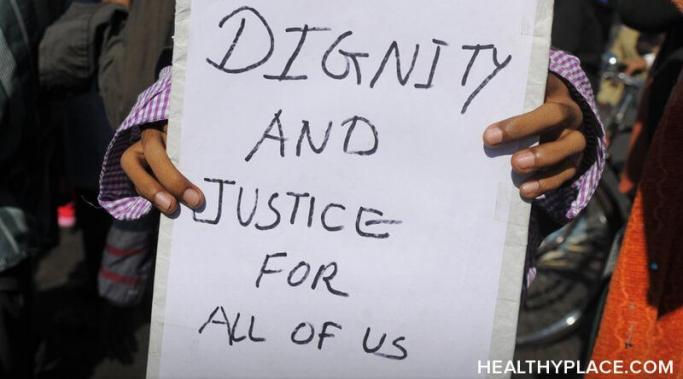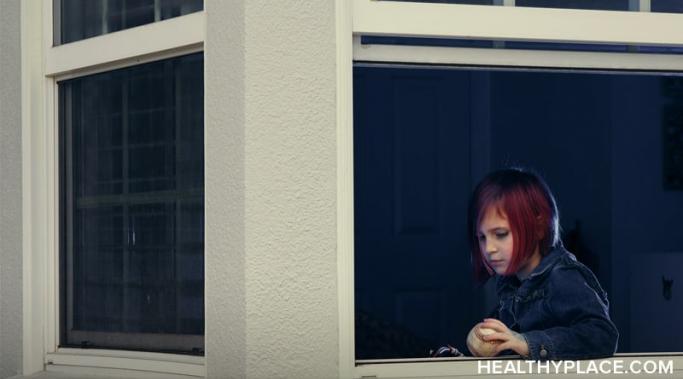Blogs
"Live one day at a time" is one of my mantras in life. As an individual diagnosed with mental illness (double depression and generalized anxiety disorder), it is harder for me than people without mental illness to live by this mantra. Here's why living one day at a time is hard for people with mental illness.
Admitting that I miss my manic symptoms has been difficult. A large part of my mental illness recovery has been fueled by the desire to get better. I continuously work towards recovery, but I still face guilt when I find myself missing the symptoms experienced from my manic episodes as someone with bipolar disorder.
Mental health stigma can affect one's self-esteem. Mental health conditions are a common yet often misunderstood aspect of human life. Despite their prevalence, the stigma attached to these conditions remains a formidable obstacle for those who bear such diagnoses. Negative stereotypes, discrimination, and social isolation experienced by individuals with mental health diagnoses can severely affect their self-esteem. In this post, we will explore the practice of defying the stigma surrounding mental health, emphasizing its role in nurturing self-esteem in those who carry such labels.
Feeling safe after enduring trauma or developing posttraumatic stress disorder (PSTD) can be a challenge. Growing up, I had a persistent uneasy feeling in my gut that manifested as a constant stomach ache. After being sexually assaulted by another (though older) child, I found myself unable to feel at ease in my own body. I worried not only about my personal safety but also my family's — especially since the boy threatened to hurt me and my loved ones if I told anyone what he did to me. Feeling safe with PTSD turned out to be very hard.
There is a specific psychology to gambling addiction. Millions of people worldwide grapple with gambling addiction and its profound impact on their lives and the lives of their loved ones. Over time, many things have been explored as causes of gambling and what makes it addictive. As someone who has battled this addiction, I looked into the psychological side of things, covering everything from cognitive biases to genetics and heredity.
It's time for me to say goodbye to "The Life: LGBT Mental Health" here at HealthyPlace. I'm grateful to have had the opportunity to share my mental health experiences with everyone. I've learned a lot as a mental health blogger. Most of all, I've learned more about myself and my identity.
\Living with bipolar disorder can present unique challenges, particularly when it comes to managing stress in the workplace. However, finding a healthy balance with the right strategies and support is possible. This blog post will explore practical tips to help individuals with bipolar disorder effectively handle stress at work and maintain overall wellbeing.
The analogy of putting on your mask first before helping others goes beyond airplane safety, especially for victims of verbal abuse. The concept that you can't help others if you cannot function yourself is critical. Another relatable comparison includes trying to pour from an empty cup. As I heal from verbal abuse, I've recognized how important taking care of myself is so I can help others.
My biggest fear as someone with schizophrenia is experiencing a prolonged period of psychosis, but I have other worries that I live with as well. Because of my anxiety disorder, fear and worry are regular visitors in my life. Most of my fears are centered around medical issues, the loss of my husband due to illness, a car accident, or a heart attack or stroke (I think of all the scary things). There is a type of fear separate from all the ones I have listed, though, but no less prevalent, and that fear has to do with judgment, stigma, and rejection. It mostly has to do with rejection.
People with borderline personality disorder often have issues with feelings of rejection. In fact, the feeling of rejection is the thing that gets under my skin the most. With borderline personality disorder (BPD), even the tiniest microexpression can make me feel like I'm going off the deep end. Now, there's this one time that sticks out like a sore thumb when it comes to feeling rejected -- the classic "no text back" scenario.










Special thanks for the "trying". One of us has said "it is by trying that we succeed."